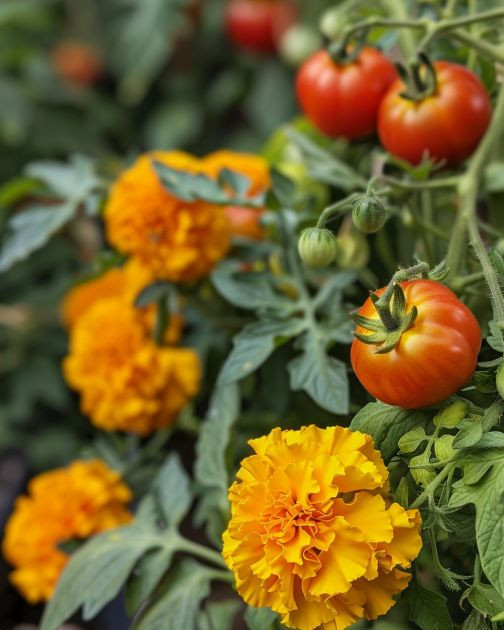2. Their decaying foliage adds organic matter to the soil, enriching it and improving its structure for better tomato growth.
Biodiversity and Pollination
1. The bright colors of marigolds attract pollinators such as bees and butterflies, which can indirectly enhance tomato plant pollination.
2. Diverse plantings create a more resilient ecosystem, reducing the likelihood of disease outbreaks that might affect your tomatoes.
Weed Suppression
1. The dense foliage of marigolds can act as a natural mulch, blocking sunlight and preventing weed growth around your tomatoes.
2. By keeping the weeds at bay, marigolds allow tomato plants to access more nutrients and water, leading to healthier and more productive plants.
Incorporating marigolds into your tomato garden might be one of the simplest ways to enhance your harvest naturally. By leveraging pest control, soil health, biodiversity, and weed suppression, marigolds offer a multi-faceted approach to a flourishing tomato crop.
ADVERTISEMENT

